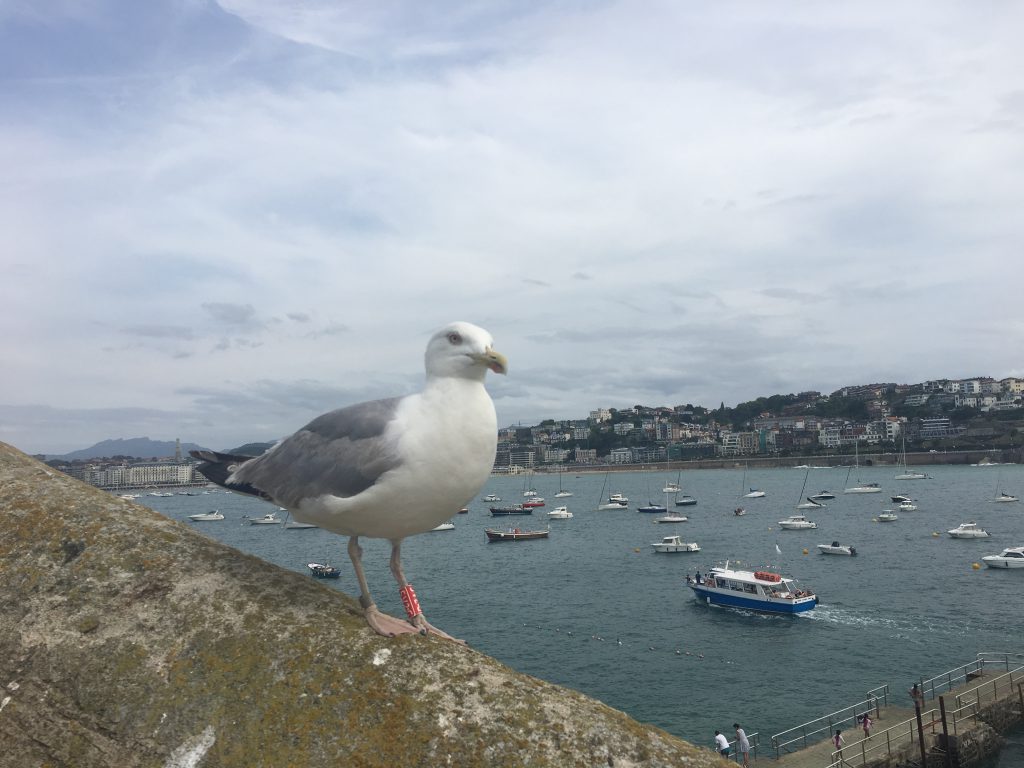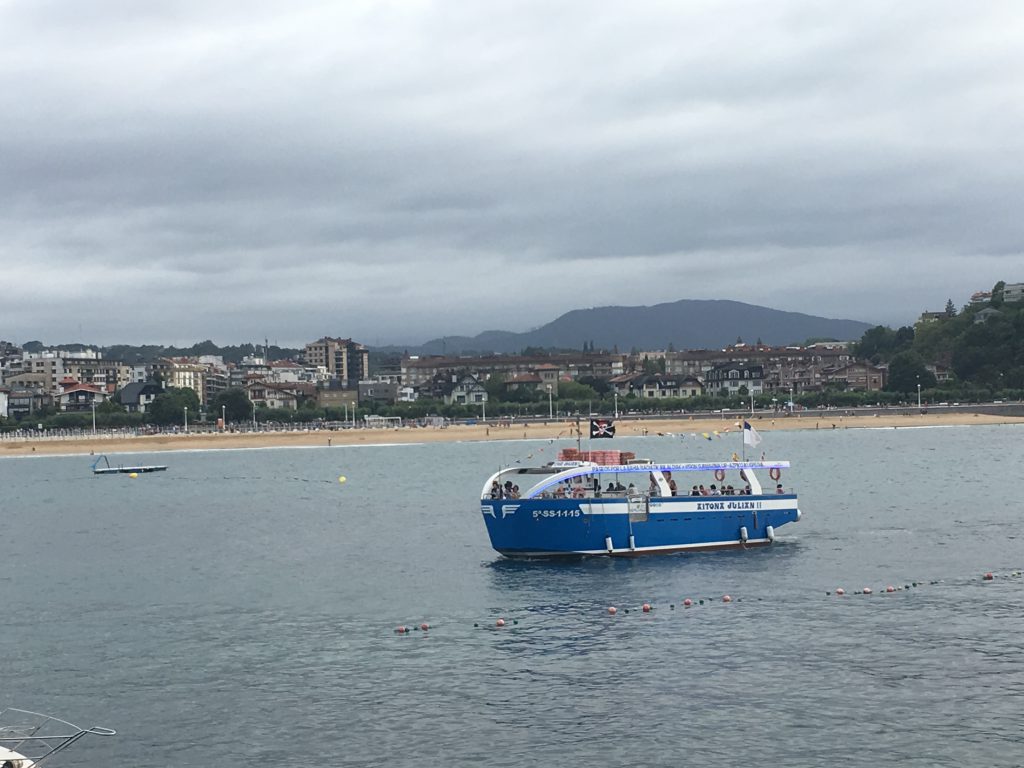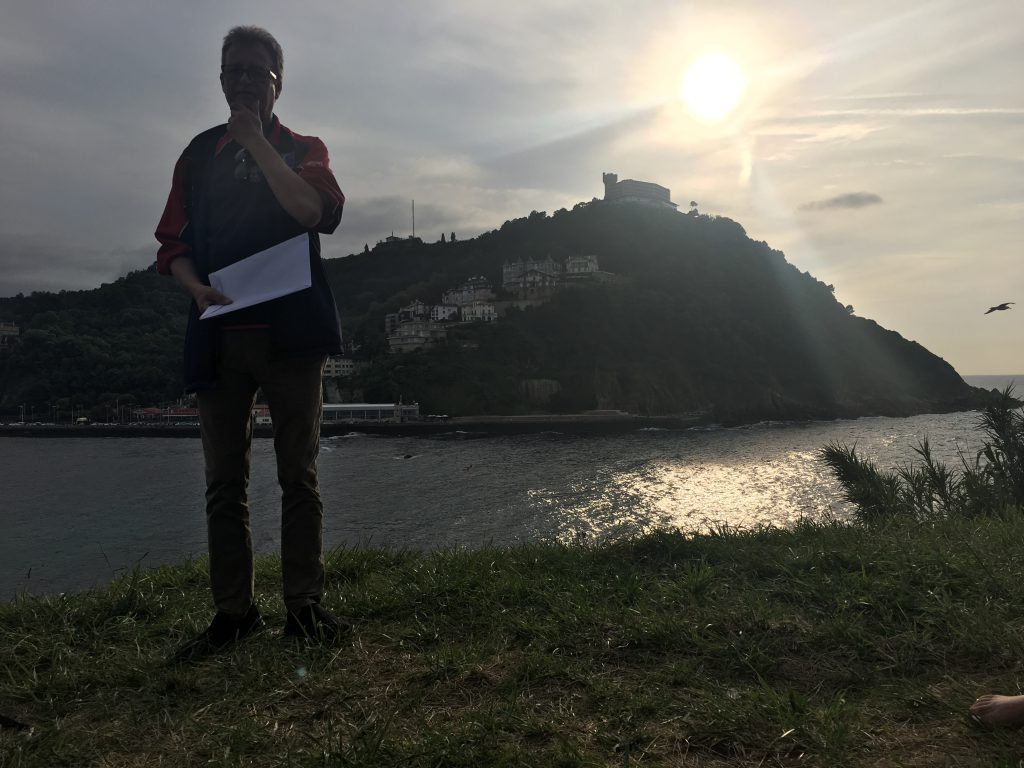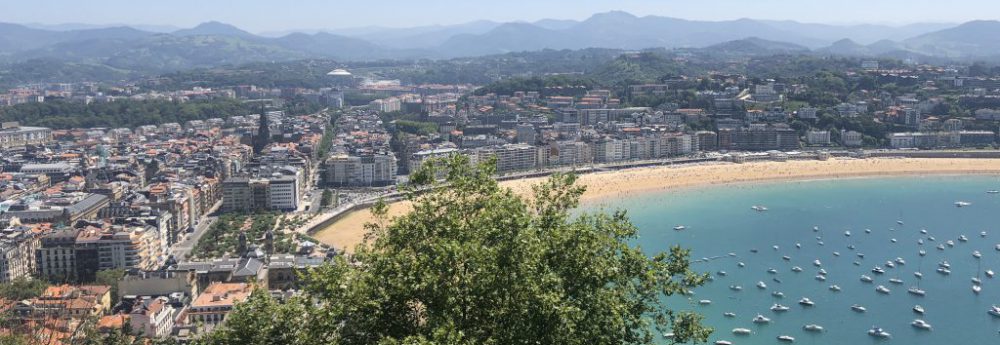Euskaraz badakizu? Ez? (Do you speak Euskera? No?) It’s okay, neither do I, and only around 700,000 people do. Euskera, the Basque language, is unlike any other in the world. It has no relation to any other language, and no known origin, and it also happens to be the oldest living language in Europe. Despite its mysterious history, Euskera is a vital aspect of the Basque culture. Encompassing parts of Northern Spain and Southwestern France, the Basque Country has a unique history of its own involving conflicts between culture and politics resulting in attempts at eradicating the language. Luckily the Basques held strong, and Euskara recovered to the point where it is considered a co-official language of the Basque Country along with Spanish.

The boat rocked back and forth like a roller coaster as we approached the little island in the bay. Although less than 10 minutes in duration, the boat ride offered picturesque views of San Sebastián’s coast line. The clear, blue water was vast in comparison to our little boat, and even in the bay, sheltered from open water, the waves were rough. The wind swept through our hair as we took in the panorama— La Concha spanned off to our left, filled with people basking in the sun and playing in the water and Mount Urgull stood behind, displaying the giant statue of Jesus looming at its peak. Around us, paddle-boarders, kayakers, and sailers moved up and down with the waves, our boat careful not to get in their way as we rode along.
Once safely docked and onshore, we climbed up Santa Clara Island to a patch of grass overlooking the water where we began our discussion on the novel Homeland by Fernando Aramburu. Examining various parts of Basque history and culture through the context of the book, we were given a deeper understanding of the importance of the language, creating a lead-in to the main event— the Basque Language class. Stuart, our Euskera instructor, had us enthralled with his copious amounts of jokes and accents in an attempt for us to retain the information. We read aloud words in a circle, trying our best to pronounce the foreign words and sounds before learning their meanings. In the span of 45 minutes we had been given just a taste of the difficulty of Euskera. Starting with basic greetings, we quickly moved on to numbers and simple questions like zein (who), non (where), and zergatik (why). The class concluded with common Basque names, and nature vocabulary terms before attempting short role-playing conversations. As I write this blog the day after the class, I can confidently say I only remember about 5 words because of the difficulty and irregularity of the language.

In the US, we take language for granted. Some travel around the world with the assumption that wherever they go there will be people who can speak English—this is certainly not always the case, but people who speak other languages don’t have this same thought process. As English-speaking Americans, we forget how much of an impact language has on culture until we come into a head-on collision with a language barrier. Not only have I encountered Spanish and Basque on this trip, but Russian and Thai (from other students living with my host family), Dutch and French (from students in Spanish class at Lacunza) and so many more as well. The list of languages I have encountered while here goes on and on, but the way that they all interact together is a thing of beauty.

I took Spanish in middle school and high school and wasn’t thrilled by it, becoming frustrated with the various conjugations and vocabulary, but here in Spain, I couldn’t be more fascinated by it. Actively learning Spanish and immediately using it in the real world outside of the classroom offers another perspective, emphasizing the importance of communication. What has also become apparent is how many languages Europeans are taught in schools, a stark contrast with the American school system in which I was raised. The students in our Spanish classes in general are more or less fluent in around three different languages, having been taught in school from a very young age. Whereas most of us on this study abroad trip are in the most basic levels of Spanish.
Because the Basque language is specific to the Basque Country, preserving it is paramount, so much so that some children are taught strictly in Euskera until a certain age in which Spanish is slowly integrated as well. I am in awe of those that can bounce back and forth between the two even in the same conversation, and I now try to listen for Basque as I walk around this beautiful city that I have come to call home for this past week and a half. So, to all my friends and family back in the US: laster arte (see you soon). Adventure awaits.
